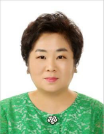 Click here to start the meeting.
Click here to start the meeting.
Abstract
In the first unit, the fact that the Korean peninsula was maintained and ruled as a single state for a long period, before the division, will be explained. The Korean division issue is not only a Korean problem but rather close to a human rights issue. In this lecture, the daily life of North Koreans is introduced, by observing from four sections of the period: 1) 1945 to 1953, 2) 1953 to 1970, 3) 1970 to 1990, and 4) 1990 until now.
The second unit will shed light on minorities’ life in North Korea. Who are minorities in North Korea? Is there any North Korean type(s) of minorities except women, children, elderly people, and/ or the disabled in North Korea? How they are making one’s everyday life since the mid-1990s? What would be the human rights issues regarding minorities’ life in North Korea? These are the topics to discuss in the class.
Required Literature
Lecture Presentation:
https://unibox.uni-rostock.de/getlink/fiNXJoGMVR5FreUYJFCwTGMu/2021-SARU-KSH.pdf
Recorded video of the lecture:
https://unibox.uni-rostock.de/getlink/fi7txKGMFismuTbXGqq9euHq/2021-07-01_KIM_Seok-Hyang.mp4
About the lecturer

Prof. Seok-Hyang Kim is a professor at the Ewha Woman's University in Seoul, South Korea, and chair holder of the Department of North Korean Studies. She studied Sociology at the Ewha Woman's University and graduating with a Ph.D. in Sociology at the University of Georgia in Athens, the USA on "The Juche Ideology of North Korea: Socio-political Roots of Change”. She is currently working and researching North Korean Studies, Inter-Korean relations, minority issues in North Korea, and everyday life in North Korea as well as Defectors' life after leaving North Korea.